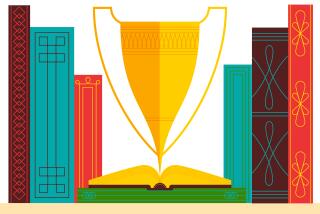Murdering knowledge
MONDAY’S BOMBING of the Mutanabi book market in Baghdad was a new low in the violence ripping through Iraq. The symbolism was clear: The suicide car-bomber wanted to strike at the heart of Iraq’s intellectual life.
Nearly four years ago, looters rampaged through the Iraq National Museum, set fire to the National Archives in Baghdad and burned down the Koranic library at the Ministry of Religious Endowment shortly after that. Priceless books and documents, letters from Ottoman and other Arabic courts, the written records of a thousand years or more, went up in smoke. And now this.
Mutanabi, named after a famous 10th century Arab poet, was once one of the grandest bazaars of knowledge, a place where books, old and new, on science, law, literature and religion were stocked in abundance. It had become a shadow of its former self in war-torn Baghdad. The supply of foreign books and magazines had been cut off.
Yet somehow it had managed to carry on. Beleaguered and now indigent Iraqis often disposed of rare, century-old books in Persian and Arabic from family collections, and many a foreign visitor picked up priceless volumes for a pittance. Afterward, surely some of those visitors whiled away hours at the nearby Shah Bandar cafe, a coffeehouse frequented by Iraqi intellectuals that was also obliterated Monday.
Neither the ordinary Shiite nor the typical Sunni gain anything by this fanatical act of destruction, which took away a resource from Iraqis and from the Arab world at large. This wasn’t a strike against a particular sect but an attack on free thought.
It is clear that the bombing that left a 20-foot-wide crater was targeted at those who think, read or are interested in learning. Books and libraries have been burned through the ages, starting with the destruction of the great library of Alexandria, to the purges of knowledge ordered by Cisneros and Savonarola in the 15th century, to more modern bonfires of the vanities by the likes of Mao, Pol Pot and the Taliban.
The terrorists who are fighting for control of Iraq realize that freedom of expression and learning are their enemies. Why else would anyone give his life to obliterate thousands of books, manuscripts and magazines?
Now that the piles of old -- including some irreplaceable -- books are but ashes, what remains to be done? One wonders if the people of Baghdad shouldn’t rebuild the Mutanabi market immediately, if only to strike back at the terrorists symbolically. As the English poet John Milton wrote during another age of religious-political censorship, “He who destroys a good book destroys reason itself.” Maybe Baghdadis should take it upon themselves to show that reason cannot be suppressed.
But in the devastating strife that is life in Iraq, does it make sense to take a stand for books? In a war-torn zone, books may seem as irrelevant as a Beethoven symphony or an Old Master canvas. Yet those books in Mutanabi market proved the depth of the Iraqis’ abiding curiosity.
A popular Arab saying holds that “Cairo writes, Beirut prints , Baghdad reads.” For a thousand years, Baghdad has been a leading cultural light of the Arab world, and this is not the first time its books have been desecrated. When a grandson of Genghis Khan sacked Baghdad in the 13th century, legend has it that the Tigris River turned black with the ink of books. Rather, it must have been the ashes.
To anyone who has ever browsed antiquarian books and felt the pleasure of finding a rare volume, the demise of the Mutanabi market should be an occasion of sorrow.
Think of London losing the bookshops of Charing Cross Road or Paris without the booksellers along the Seine. Baghdad will never be the same.
Across the world, anyone who has ever loved a book has lost something very dear indeed. No man is an island, and no reader either, and this death knell to reading in Baghdad diminishes us all.
More to Read
Sign up for our Book Club newsletter
Get the latest news, events and more from the Los Angeles Times Book Club, and help us get L.A. reading and talking.
You may occasionally receive promotional content from the Los Angeles Times.






